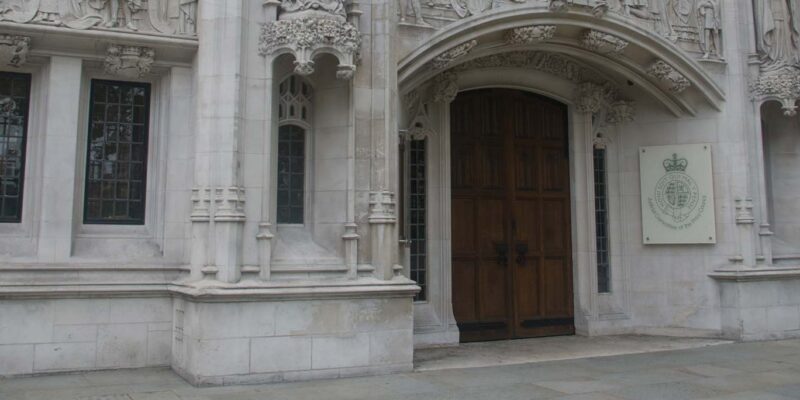Manchester 0161 832 2500 | London City 0204 505 8080 | London Finchley 020 8349 0321
Secure PaymentA rentcharge is an annual or periodic sum paid by a freehold homeowner to a third party or “Rent owner”. The amount paid can be nominal, and the rent owner typically has no other connection to the property apart from the rent reserved by lease or any interest.
A rentcharge can be an interest in land (section 1(2), LPA 1925) even though the rent owner may not hold any land. There is no privity of estate between the rent owner and the rent payer. Unlike a lease, the rent owner holds no reversionary interest in the charged land.
The rentcharge binds the original rent payer and their successors in the title by virtue of the charge over the charged land and the methods of enforcing that charge if payment is not made, rather than the positive covenant to pay the rentcharge that runs with the land.
Abolition of Rentcharges
In line with Section 2 of the Rentcharges Act 1977, no new rentcharges (whether legal or equitable) can be created on or after 22 August 1977, subject to limited exceptions. So if your agreement post-dates this point – unless there are exceptions as laid out in your original agreement – you are not subject to rentcharges. However, there are still certain circumstances when this levy is applied, including:
- Estate rentcharges
- Those created by or under specific statutory provisions in connection with the execution of works on land or the commutation of any obligation to do them
- Any rentcharges created by or following a court order
- Any rentcharges included in family trust arrangements.
What are estate rentcharges?
An estate rentcharge is essentially a mechanism for a third party such as a management company or developers to secure contributions to the costs of maintaining communal areas.
Estate Rentcharge is usually also referred to as estate charge.
This charge is obligatory and should be included in the initial contract so that all homeowners are fully aware of their financial obligations. Estate rentcharge pays for a wide range of services that can include:
- Street lighting in residential areas
- Maintenance of private roads, pathways and grass verges
- Maintaining landscaped gardens
- Maintenance and repair of private drainage systems
Minimal protection for the rent owner
Most residential tenants and leaseholders benefit from protection under the Landlord and Tenant Act 1985 (LTA 1985) against excessive service charges. However, there is no provision for rent payers to be consulted in determining the estate rentcharge. There is also no process for challenging it if a resident feels that the estate rentcharge is unreasonable or excessive. This could leave property owners subject to very high estate rentcharges with no recourse.
Lack of control of management of the common parts
Leaseholders of residential flats may be entitled to take responsibility for managing their building under the right-to-manage provisions in Part 2 of the Commonhold and Leasehold Reform Act 2002. However, unless there is a clear option for this in a rentcharge scheme, there is no way for rent payers to take control of the ownership or management of common parts such as communal gardens, for example.
Harsh statutory rights/enforcement techniques available to rent owners
Under Section 121 of the Law of Property Act 1925, there are two options available to rent owners:
- The right to enter into possession of and hold the Charged Land or any part thereof, and take the income from the Charged Land (section 121(3) LPA 1925). Unlike forfeiture proceedings against a leaseholder following a breach of a lease (under section 146 LPA 1925), the rent owner is not required to serve any notice to the homeowner giving them a reasonable period to remedy the breach. There is also no right for the homeowner to apply to the courts for relief.
- The rent owner may also by deed demise the land charged, or any part of the property, to a trustee for a term of years, on trust, to raise and pay the annual sum and all arrears thereof due or to become due, and all costs and expenses occasioned by non-payment of the annual sum, or incurred in compelling or obtaining payment thereof, or otherwise relating thereto, including the costs of the preparation and execution of the deed of demise, and the costs of the execution of the trusts of that deed. If there is any surplus of the money raised or the income received under the trust, it shall be paid to the homeowner (section 121(4) LPA 1925).
The implication of this is that if the rentcharge goes unpaid for 40 days, the rent owner may grant a lease of the property to a trustee.
It is important to note that there is no need for any legal demand or notice, and the lease can be promptly registered against the title at the Land Registry. Once registered the existence of the leases will make each property unsaleable even if the trustees choose not to take possession.
The 2016 case of Roberts v Lawton demonstrated that once such a lease is granted on the Charged Land, it continues even when the arrears have been paid or if the rentcharge itself has been terminated. The only exception is if it has been surrendered voluntarily by the rent owner. The court further held that this right is unaffected even if the Appellants have provided no information about their entitlement to the rentcharge, even if they have sent demands to the wrong address, and even if they have refused arrears after the grant of the lease.
These issues have made mortgage lenders very nervous. Many mortgage lenders will not lend against properties subject to an estate rentcharge unless these statutory rights have been excluded or suitably modified in the property’s title. The only other alternative that will encourage mortgage lenders to consider this scenario is if there are provisions requiring the estate rentcharge owner to give a minimum period of 40 days’ notice to the mortgage lender. This allows them to pay the arrears of estate rentcharge.
Lenders Requirements
Various lenders have different requirements regarding estate rentcharge. Lenders may require one or a combination of a different number of provisos, including:
- The rentcharge deed specifies that the rent owner gives notice to the borrower or lender before exercising its remedies. This enables the rent payer to remedy the breach.
- The rentcharge deed either excludes the statutory remedies under section 121 of the LPA 1925 or excludes the statutory right to create a lease over the property under section 121(4) of the LPA 1925. Alternatively, it provides that if a lease is created under section 121(4) of the LPA 1925, then it will be surrendered upon payment of the sums due.
- The rentcharge deed, in return for the rentcharge payments, contains covenants on behalf of the rent owner to perform or provide services covering common areas or facilities.
- That the current annual amount payable under the rentcharge does not exceed a certain amount. It also must not increase by more than double every 25 years.
- The rentcharge deed is varied regarding certain matters (such as those suggested in the bullets above).
- That the rent owner is a management company comprising of the residents, who are the shareholders of a private freehold development
- That indemnity insurance is obtained in certain circumstances or can be obtained in addition to 1-6 above for further protection. Bear in mind that some lenders state that an indemnity policy is not an acceptable alternative where a deed of variation is required.
Conclusion
On any conveyancing transaction where an estate rentcharge applies, appropriate steps need to be taken to rectify provisions, so they meet the mortgage lender’s requirements.
Clients should be informed of how rentcharge operates and the consequences if these are unpaid. They should also be advised that there may be issues or delays on a property sale if potential buyers’ mortgage lenders have strict requirements or require the amendment of existing rentcharge provisions.
It’s also important to advise clients of the financial implications and obligations regarding estate rentcharge. Unlike under a leasehold regime, there is currently no statutory method that allows property owners to challenge the level of charges imposed by an estate rentcharge.
If you would like to talk in confidence to a Property expert, please contact us or phone 020 8349 0321.


